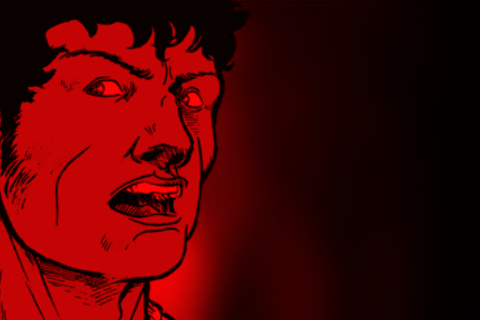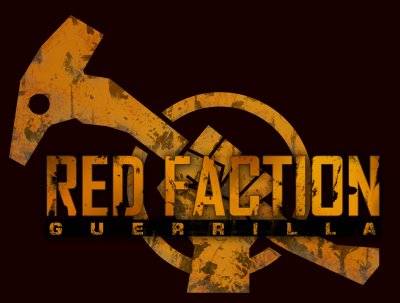Nov
25
2009

For our 3rd Book Club interview, Episode 027, we’re joined by the author of My Tiny Life, Julian Dibbell. Julian has been writing about technology and game worlds since the early 1990s, and pioneered a form of digital ethnography that has influenced a generation of game writers and journalists. We discussed the early days of online worlds, griefers, meme theory and much more. We also pose tough questions to Julian supplied by McKenzie Wark, Leigh Alexander, and Netwurker Mez.
no comments | posted in podcasts
Oct
16
2009
 As the FWR crew attends the &Now conference in Buffalo, NY, we’re pleased to release Episode 026 featuring an interview with Ian Bogost. Ian is a writer, developer, and professor and joins us for a conversation on his recent book with previous guest Nick Montfort, Racing the Beam. We also get into his creations at Persuasive Games LLC, as well as his book, Persuasive Games: The Expressive Power of Videogames. We talk about the creative potential of the Atari VCS long after its commercial life cycle, Ian’s experiences teaching games, and the recent closing of Water Cooler Games. Enjoy the latest in our series of interviews, and look for audio from the conference as well as our Book Club episode with Julian Dibbell soon.
As the FWR crew attends the &Now conference in Buffalo, NY, we’re pleased to release Episode 026 featuring an interview with Ian Bogost. Ian is a writer, developer, and professor and joins us for a conversation on his recent book with previous guest Nick Montfort, Racing the Beam. We also get into his creations at Persuasive Games LLC, as well as his book, Persuasive Games: The Expressive Power of Videogames. We talk about the creative potential of the Atari VCS long after its commercial life cycle, Ian’s experiences teaching games, and the recent closing of Water Cooler Games. Enjoy the latest in our series of interviews, and look for audio from the conference as well as our Book Club episode with Julian Dibbell soon.
no comments | posted in podcasts
Sep
14
2009

We are joined for Episode 025 by Erik Loyer of Opertoon. The first Opertoon game, Ruben & Lullaby, was released earlier this year via the iTunes App Store and has received attention for its unique method of narrative delivery and implementation of interactive musical elements. We quiz Erik on the direction of digital narratives, control schemes and their emotional impact, and the potential for music games outside of the Guitar Hero model. Unlike Ruben & Lullaby, there is no possibility that we break up at the end of this episode, even though Shawn does end up shaking Trevor like a snow globe. Thanks to Erik for joining us and thanks for listening.
no comments | posted in podcasts
Aug
15
2009
 After a long summer break, FWR returns with Episode 024 and guest Sinan Kubba of the Big Red Potion podcast and TheGameReviews.com. We use Trevor’s recent trip to Las Vegas as a jumping off point for a conversation about the culture of gaming establishments, risk and reward systems, and the act of survival as part of an economic gamespace. We talk about the differences between European and North American gambling traditions as well as the portrayals of such games in artistic mediums. Thanks to Sinan for taking the time to join us, and thanks to you for listening.
After a long summer break, FWR returns with Episode 024 and guest Sinan Kubba of the Big Red Potion podcast and TheGameReviews.com. We use Trevor’s recent trip to Las Vegas as a jumping off point for a conversation about the culture of gaming establishments, risk and reward systems, and the act of survival as part of an economic gamespace. We talk about the differences between European and North American gambling traditions as well as the portrayals of such games in artistic mediums. Thanks to Sinan for taking the time to join us, and thanks to you for listening.
no comments | posted in podcasts
Jun
22
2009
 Revisiting some favorite themes, Episode 023 also sees us joined by J Goldberg, Community Manager at Volition. Having recently shipped Red Faction: Guerrilla, J sits down with us for a conversation on open world gaming and the significance of destructible environments (metaphorically as well as mechanically). We also take on fears of simulation and representation, shifting similarities between games and other artistic spaces, and player characters in fictional roles and their importance. Thanks to J, don’t forget about our book club, and enjoy.
Revisiting some favorite themes, Episode 023 also sees us joined by J Goldberg, Community Manager at Volition. Having recently shipped Red Faction: Guerrilla, J sits down with us for a conversation on open world gaming and the significance of destructible environments (metaphorically as well as mechanically). We also take on fears of simulation and representation, shifting similarities between games and other artistic spaces, and player characters in fictional roles and their importance. Thanks to J, don’t forget about our book club, and enjoy.
no comments | tags: art, narrative, politics, red faction guerrilla, video games | posted in podcasts
Jun
14
2009

Episode 022 finds us joined by artist and educator Stephanie Rothenberg for a conversation on the importance of play. Stephanie runs an online training simulator/spoof and a virtual jeans sweatshop, The School of Perpetual Training and Invisible Threads, respectively, allowing us to discuss everything from the effects of varying input methods to the exploitation of the gamer hive mind. We question the necessity of gadget fetishism and the receptivity of the gamer community to criticism, as well as definitions of “play” and “work” and a few things in between. Thanks to Stephanie for joining us, and thanks to you for listening.
no comments | posted in podcasts
May
18
2009
 In Episode 021 we’re joined by Leigh Alexander of Gamasutra, Kotaku, and Sexy Videogameland. We were excited to talk with Leigh about the impact of social networking technologies on game development and coverage, authorial control and community involvement, as well as Twitter and N’Gai Croal’s WordFu score. Thanks to Leigh for taking the time to join us, and thanks to you for listening.
In Episode 021 we’re joined by Leigh Alexander of Gamasutra, Kotaku, and Sexy Videogameland. We were excited to talk with Leigh about the impact of social networking technologies on game development and coverage, authorial control and community involvement, as well as Twitter and N’Gai Croal’s WordFu score. Thanks to Leigh for taking the time to join us, and thanks to you for listening.
2 comments | posted in podcasts
Apr
18
2009
 In our second Book Club episode we are delighted to be joined by McKenzie Wark to discuss his networked book Gamer Theory. In our conversation we explore the book’s genesis as an outcropping of Wark’s influential 2004 offering A Hacker Manifesto; its unique gestation as an online text at the Future of the Book; the connections between reading + play and writing + design; and how agon is at the center of the banking crisis and resultant New Depression economy. We also manage to work in a few of the questions you sent us, so make sure to listen carefully for your glorious No-Prize when we call your name.
In our second Book Club episode we are delighted to be joined by McKenzie Wark to discuss his networked book Gamer Theory. In our conversation we explore the book’s genesis as an outcropping of Wark’s influential 2004 offering A Hacker Manifesto; its unique gestation as an online text at the Future of the Book; the connections between reading + play and writing + design; and how agon is at the center of the banking crisis and resultant New Depression economy. We also manage to work in a few of the questions you sent us, so make sure to listen carefully for your glorious No-Prize when we call your name.
We’d like to thank all of you who read along with us, and especially those of you who contributed comments and questions. We’ll be announcing a new selection for the club within the next few weeks, and look forward to having you join us again.
1 comment | posted in book club, podcasts
Apr
8
2009
 Continuing our focus on iPhone/iPod Touch games, Episode 019 is centered around the recent remake of Wolfenstein 3D for that platform. We talk about the history of Wolf 3D, the impact that John Carmack and id Software have had on videogames, computer networks, and Shawn’s patience. In a future episode, we’ll discuss how to install Doom on your toaster. Stay tuned.
Continuing our focus on iPhone/iPod Touch games, Episode 019 is centered around the recent remake of Wolfenstein 3D for that platform. We talk about the history of Wolf 3D, the impact that John Carmack and id Software have had on videogames, computer networks, and Shawn’s patience. In a future episode, we’ll discuss how to install Doom on your toaster. Stay tuned.
no comments | posted in podcasts
Mar
31
2009

In Episode 018, we talk about the recent iPhone/iPod touch reincarnation of an old favorite, The Oregon Trail. This game was instrumental in shaping how we understand not only educational games, but also games in general. We talk about input methods, the trajectory of educational games, and where the original and current versions of this title fit in.
Quickly, thanks to Sinan Kubba and Joseph DeLia at the Game on: Big Red Potion podcast for actively engaging us in conversation in both textual and audio formats. And thanks to you for listening.
no comments | posted in podcasts







